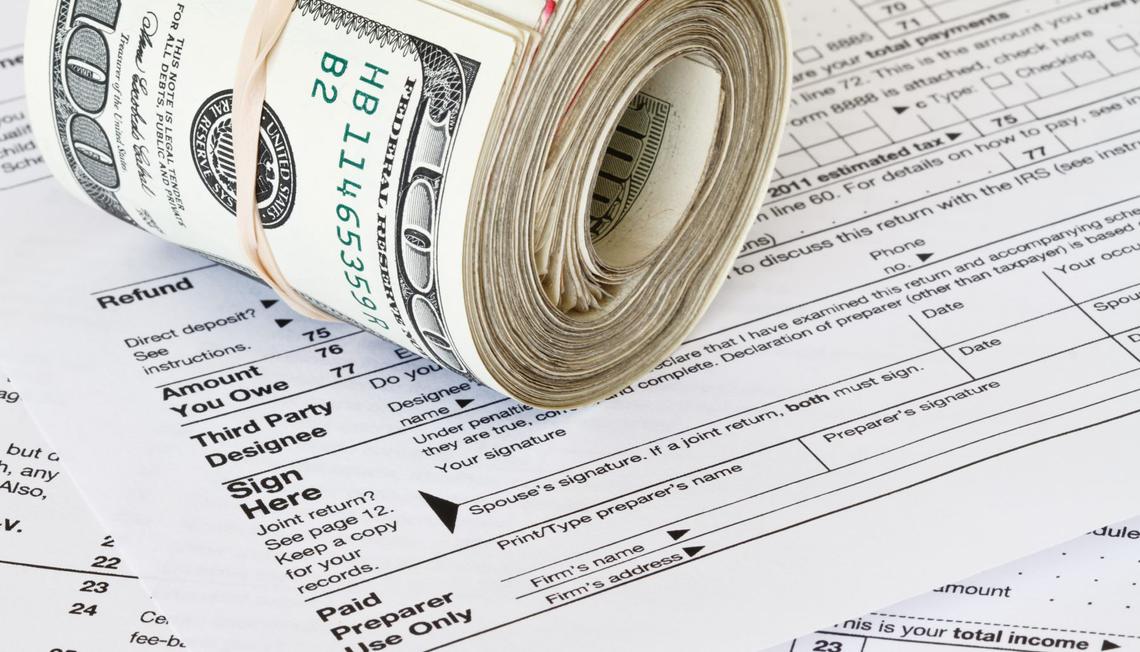There are obvious perks to homeownership, but did you know that owning a home can also save you money on your taxes? Buying a home is a big investment, but there are benefits for homeowners that can pay off big during tax season and make owning a home more affordable. Make sure you’re getting as much as you can out of your home this spring.
Here are six different homeownership deductions that can save you money this tax season:
#1: Property Tax Deduction
One of the most well known homeownership tax deductions available is that on property tax. When you own a home, any real estate property taxes you pay can be claimed and deducted on the Schedule A form.
If you bought a home within the filing year, you will need to check your HUD-1 settlement statement to see if you paid any property taxes when you closed on your house because they are also deductible. You can consult with your agent to verify this as well.
Tip: You can find out how much you paid in real estate property taxes by checking your annual escrow statement if your mortgage comes with an escrow account.
#2: Mortgage Interest Tax Deduction
Homeowners can take advantage of the interest they pay on their mortgage each year by claiming this deduction on their taxes. As long as your mortgage is secured by your home — which FYI could be anything with a kitchen, bed, and toilet — any interest you pay on a mortgage up to $1 million can be deducted ($500,000 if you’re filing separately as a married couple).
The mortgage on your first home isn’t the only loan that can qualify for this deduction. Your home equity loans, home equity lines of credit, refinanced loans, and even second mortgages can all be included for deducted interest. Note that only two home mortgages is the maximum for this deduction; a third mortgage cannot be applied.
When you claim the mortgage interest deduction this tax season, just be sure to cover your bases. Remember that the total amount of interest from all combined loans cannot exceed $1 million or $500,000 for married couples who file separately. Also, the money must have been used to purchase a home, build a home, or improve a home you already own in order to qualify. However, student loans secured by your home counts towards deductible interest. As long as your home secures the loan, it can be applied for this deduction.
#3: Prepaid Interest Tax Deduction
When you take out a mortgage loan or refinance your loan, any prepaid interest you pay — also referred to as “points” — can be deducted from your taxes within that filing year. Homeowners can find out how many points they paid by checking form 1098 which is usually sent by the lender. You can also check the HUD-1 settlement sheet from closing day to find out how much you paid in prepaid interest.
Your agent will be able to help you determine how much you paid in prepaid interest on your mortgage, but this deduction can get tricky when refinancing is involved, so be sure to also consult with a tax advisor to claim it correctly.
#4: Vacation Home Tax Deduction
Owning a vacation home can also save you money during tax season. If you are the only one using your vacation home, you can claim the mortgage interest rate deduction and the property tax deduction just as you would for your first home — as long as your vacation home isn’t rented out for more than 14 days a year.
If you do rent your vacation home out for more than 14 days a year, it is classified as a rental property, but you can still deduct certain expenses. Note that the same classification applies if you spend less than 15 days living in your vacation home yourself.
Good record-keeping is very important when it comes to tax deductions on vacation homes because you will need to know exactly how many days it was rented out, how many days you used your own vacation home, and the total dollar amount of any expenses paid plus how much money you made from renting out your vacation home.
#5: Mortgage Insurance Premiums Tax Deduction
If you did not put down a downpayment of at least 20 percent when you bought your home, lenders require home buyers to purchase mortgage insurance. Homeowners can choose private mortgage insurance (PMI) or government-backed insurance through the VA or the Federal Housing Association (FHA).
The good news is that premiums on mortgage insurance can be deducted as long as you make less than $100,000 a year or $50,000 for married couples filing separately. The deduction is minimized for those who make more than $100,000 for each extra thousand up to $110,000. Any homeowner who makes more than $110,000 cannot claim this deduction.
Homeowners can deduct the cost of PMI as mortgage interest if your tax return is itemized. Note that this only applies to mortgage loans taken out in 2007 or later. It gets more complicated when deducting VA or FHA mortgage insurance because some of those premiums are paid at closing. We recommend consulting with a tax professional to calculate deductions from government-backed mortgage insurance to ensure you file it correctly.
#6: Energy-Efficient Home Systems Deduction
This last one isn’t exactly a tax deduction and more like a tax credit, but it still saves you money on your taxes and energy bills. Tax credits can be even more valuable because they are able to be applied to offset dollar for dollar what you owe the IRS.
When you upgrade your home to be more energy-efficient, the Nonbusiness Energy Tax Credit allows you to claim up to 10 percent of the total amount spent with a lifetime cap of $500. Energy-efficient stoves, roofs, insulation, ventilation, water heaters, windows, and doors are some of the included upgrades eligible for this tax credit.
Bottom Line
Homeownership can really pay off during tax season. Talk to your real estate agent and tax advisor to ensure you’re taking advantage of all deductions related to homeownership this spring. If you’ve been renting and these tax deductions have convinced you to move forward with buying a home, contact the Keri Shull Team to get started right away!





